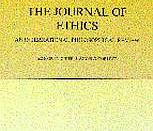Definitions of Situation ethics:
* Situational ethics refers to a particular view of ethics, in which absolute standards are considered less important than the requirements of a particular situation. The standards used may, therefore, vary from one situation to another, and may even contradict one another. This view of ethics is similar to moral relativism, and is contradictory to moral universalism, and moral absolutism.
Definitions of teleological ethics:
* A set of ethical beliefs based on the goodness or badness of consequences, whether actual, intended or predicted. For purposes here, restricted to consequences to individuals, in contrast to utilitarian ethics. Open to change according to empirical observation of outcomes (hence "evidence based ethics"). For practical application, and a contrast to deontological ethics and utilitarian ethics
In philosophy, moral relativism is the position that moral or ethical propositions do not reflect absolute or universal truths but instead are relative to social, cultural, historical or personal references, and that there is no single standard by which to assess an ethical proposition's truth.
Relativistic positions often see moral values as applicable only within certain cultural boundaries or the context of individual preferences. An extreme relativist position might suggest that it is meaningless for the moral or ethical judgments or acts of one person or group to be judged by another, though most relativists propound a more limited version of the theory.
Moral absolutism is the position that there are absolute standards against which moral questions can be judged, and that certain actions are right or wrong, regardless of the context of the act. It is a subset of moral objectivism, and stands in contrast to situational ethics, which hold that the morality of acts depends on the context of the act. According to moral absolutism, morals are inherent in the laws...


